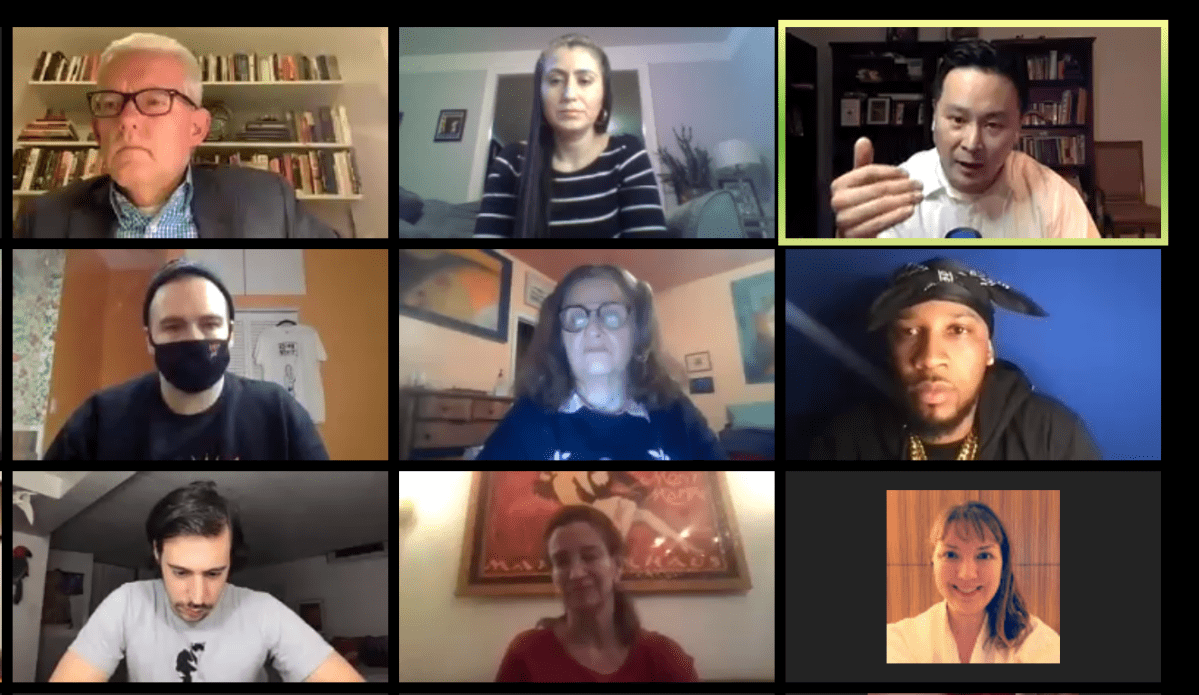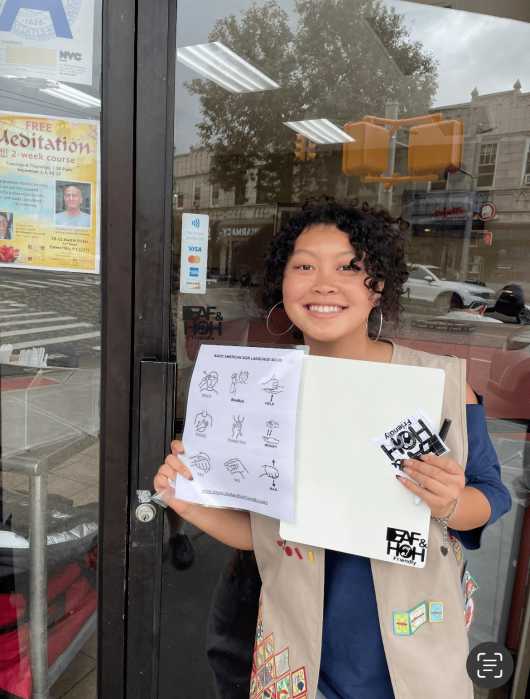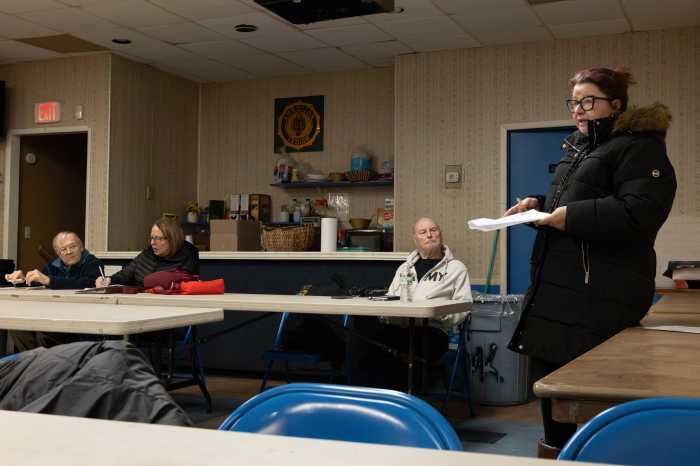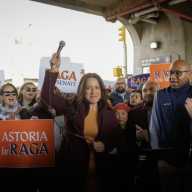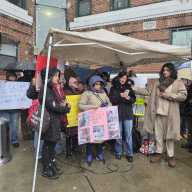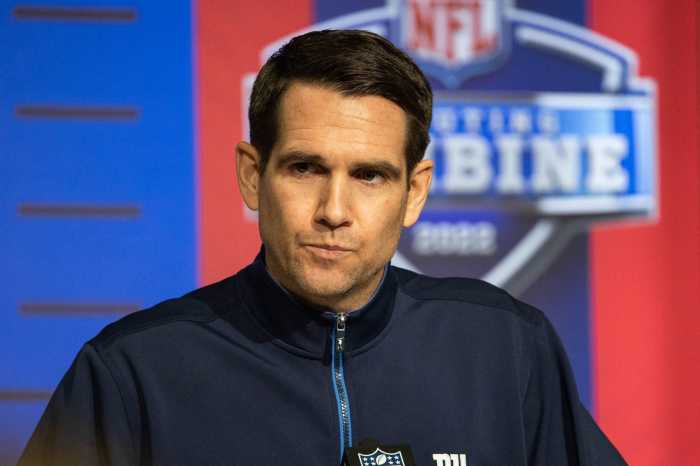Councilman Jimmy Van Bramer hosted a virtual town hall on the future of small business and good jobs in the post-COVID economy for Queens on Thursday, Feb. 18.
Van Bramer, a Democratic candidate for Queens Borough president, was joined by Senator Jessica Ramos, Assemblyman Ron Kim and former Amazon employee and activist Christian Smalls, who recently filed a lawsuit against the e-commerce giant.
The panel discussed ways the city and state can support small businesses and workers, how the government has fallen short through the pandemic, and how to bring women back into the workforce.
“We’ve lost so many jobs in this city — 520,000 in our small business sector alone. Yet the government has been awarding billion-dollar corporations with PPP, tax breaks and other subsidies, while small businesses — the very heartbeat of our neighborhoods — suffer,” Van Bramer said. “We want to make sure that a just economic recovery centers people, centers workers, centers businesses and worker rights. We need rent relief, we need commercial rent control, and we need the Small Business Jobs Survival Act — all those are being fought by the real estate industry.”
Small businesses have felt the brunt of the COVID-19 pandemic’s economic impact — roughly one-third of the 240,000 small businesses in New York City may never reopen, according to the Partnership for New York City.
According to Van Bramer, the pandemic has exacerbated long-term trends for small businesses in New York City, which must be the focus of economic recovery. Van Bramer’s vision prioritizes small businesses rather than big corporations who refuse to pay their fair share, neglect workers and make money off their suffering.
In his fight for workers’ rights, Smalls’ advocacy has led him to the forefront of speaking up for all essential workers.
After he was fired from Amazon last year, Smalls filed a class action suit against the mega-corporation alleging that Amazon violated federal civil rights laws by terminating his employment and allegedly putting thousands of other minority Amazon workers at risk during the pandemic.
“The attorney general’s lawsuit is going to be significant for all whistleblowers. We sometimes get a bad rap. We get scrutinized. Being in the public during this pandemic changed my life forever, and I think this lawsuit is validating the fact I was telling the truth the entire time,” Smalls said.
At the height of the pandemic in March, Smalls said he went to the Human Resources Department and raised concerns about safety and health protocols in the facility.
“I didn’t get an answer that I thought was sustainable. They told me they were following CDC guidelines and that was it,” said Smalls, who started working at the JFK8 fulfillment center in Staten Island in 2015 and was promoted to a mid-level management position the following year.
In March, Smalls said he noticed a colleague was sick and told her to go home. He then began seeing other employees in his department become sick — some experiencing symptoms such as dizziness, fatigue and vomiting at their work stations.
“We had nothing to protect ourselves at the time. Amazon didn’t offer PPE [or] cleaning supplies,” said Smalls, who began reaching out to the governor’s office, mayor’s office and the media to shed light on the matter.
Smalls had organized with workers in the cafeteria who felt that management was unresponsive to their concerns. The workers led a walkout demonstration outside of the facility’s parking lot on March 30.
In response to Smalls’ experience with Amazon, Kim, one of the first public officials to lead the opposition against Amazon HQ2 in Long Island City, said it’s important to invest more in the local economy.
“Everything we do should be centered around workers: Why do we have an economy that constantly focuses on the very top? We talk about buying local, but do we actually invest in our local economy?” Kim said. “Our small businesses are shut down — 60 to 65 percent are not going to come back because they did not have any support. We’re investing in the wrong place: If we invest in our people, if we invest in care, if we invest in mom and pops and local cooperatives, we’re leaving less of a carbon footprint — it’s all connected.”
Ramos, chair of the Senate Labor Committee, said there is a culture of over-consumerism, as people were ordering more products online amid the pandemic.
“We do have to think about it, especially as elected officials, how we are putting forth an economy that is protecting small businesses and workers. We can’t just worry about convenience and affordability when it comes to all of these products,” Ramos said. “It’s important to think about putting forward an economy that is protecting small businesses and its workers. We all love our restaurants and small businesses because they are what make our blocks special, but all of that is going to disappear if we keep buying on Amazon.”
Real estate plays a big role, according to Van Bramer, who said that landlords’ rising rents cause small businesses to shut down.
“If we taxed billionaires in this state in a way that’s fair and just, we would have the money we need to make sure small businesses could survive,” Van Bramer said. “We would be able to accomplish meaningful rent relief and the fact that we don’t is a consequence of the fact that billionaires and big real estate have power in the executive mansion in Albany and power over far too many.”
As 3 million women have dropped out of the workforce during the pandemic, Van Bramer said they must be prioritized and subsidized to address the issue. To better support women who own businesses and are in the workforce, Ramos said support largely comes from a place where they need greater access to capital — which is true of minority- and women-owned businesses alike.
“We have a hard time accessing loans and accessing grants and resources in order to get going. For women who happen to be mothers, we have deep childcare issues, and now, that situation is worse and much more urgent,” Ramos said.
Before the pandemic, Ramos, along with several other lawmakers and City Comptroller Scott Stringer, drafted a bill to create a payroll tax to expand access to affordable care for the city’s youngest children. The proposed state bill, NYC Under 3, would benefit families and also the city economy by growing the workforce. The bill would raise almost $660 million, according to elected officials, allowing the city to serve 34,000 more infants and toddlers from birth through age 3.
“If your business is grossing around $250 million in payroll every year, then you would have to pay less than half of a percentage in tax and that would allow us to have enough money to provide most children in NYC with affordable childcare,” Ramos said.
Ramos said they’re looking to readdress the bill, while also highlighting the need for an efficient system for people to be able to find childcare.
“That sends people back into the workforce and helps a lot of caretakers to launch their own small businesses, which has been proven to help the economy,” Ramos said.

